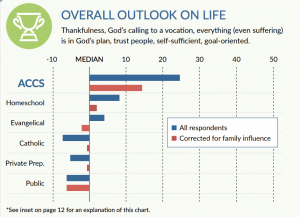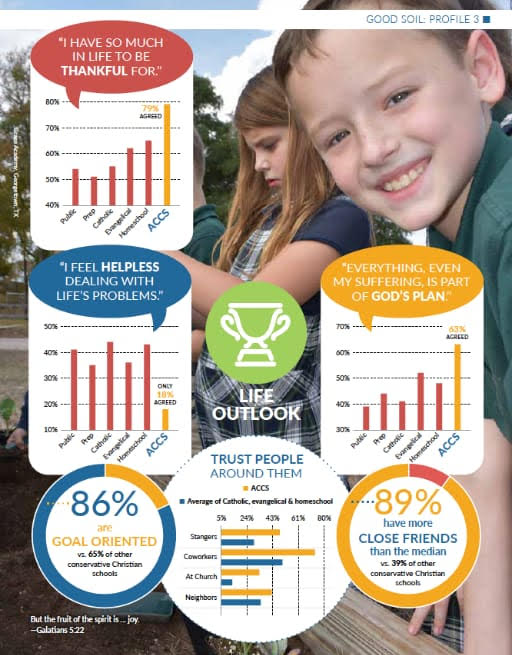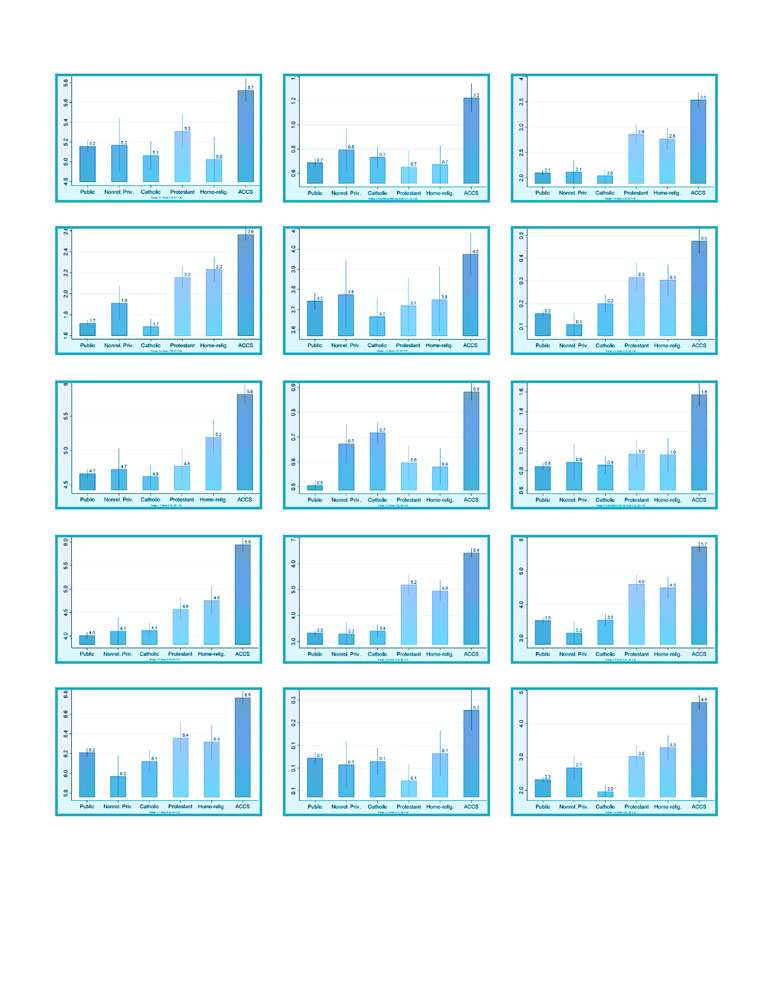What is the fair market value of classical Christian education?
ACCS alumni have positive life outlooks, indicating better life satisfaction.
If you want your children to grow up as well-balanced, generally happy adults, this is the profile to consider when choosing a school. Think of “Life Outlook” as something of a happiness index, or a mental health profile. This profile contains some “opinion responses” like “Do you agree that everything, even suffering, is part of God’s plan?” And, it also has some attitudinal questions like “I feel helpless dealing with life’s problems: agree or disagree?” It also asks some questions that, when com- piled, profile “life outlook” based on known psychological factors, like the number of close friends they have, or how much they trust others.

Blue bars are actual data. The red bars reflect the school’s effect, isolated from other family factors.
The results here are understandable, but may not have been predicted. The two segments furthest above the median are secular private preparatory alumni and ACCS alumni. When family factors are removed, ACCS scores drop about 8 points while prep schools increase by 3 or 4. This means that a child’s family influence would have causation with this profile, no matter which type of school they attend. But, ACCS schools still reflect more than twice the score on Life Outlook.
ACCS alumni have a clear sense of purpose and direction. Only 14% of ACCS alumni agreed that life lacks clear goals or a sense of direction. ACCS schools give students perspective on life through a study of theology, philosophy, history, and literature–with a wide ranging exposure to the Western Canon. And, they are taught to love the Lord with their mind, soul, and strength throughout every subject. We believe this perspective shows up when alumni think about their significance in the grand scheme of things. This question indicates ACCS alumni
are hopeful, as we will soon see.
By a significant margin, ACCS schools influence their alumni to have a high sense of gratitude. The raw score went from a low of 1 to a high of 7 in the questionnaire. ACCS alumni averaged 6.8. While many respondents agreed with this statement, ACCS alumni were outliers in the magnitude of their gratitude.
Psychologists have long found that “trust in others” is a sign of mental health. ACCS alumni trust strangers, coworkers, church members, and neighbors more than any other group by a wide margin. They are goal oriented and feel empowered to achieve.
Nearly 90% of ACCS alumni reported more close friends than the median, with the next highest group—secular preparatory schools—having 53% above the median.
83% of ACCS alumni talk with their friends about religion and significantly more of them interact frequently with their friends on a weekly basis.
A healthy view of suffering, life goals, gratitude, trust of others, and strong friendships are significant indicators that our students enjoy life with a depth and understanding that is un-matched, and much, if not most, of the apparent cause is the ACCS school they attended.

THE DIFFERENCES ADD UP
WITH OVER 300 resulting data points, the most noticeable difference was in the sheer number of differences.
In a survey of this type, the magnitude of the differences shown indicates that something is unique about ACCS graduates. The graphic below shows some of this magnitude at a glance.











